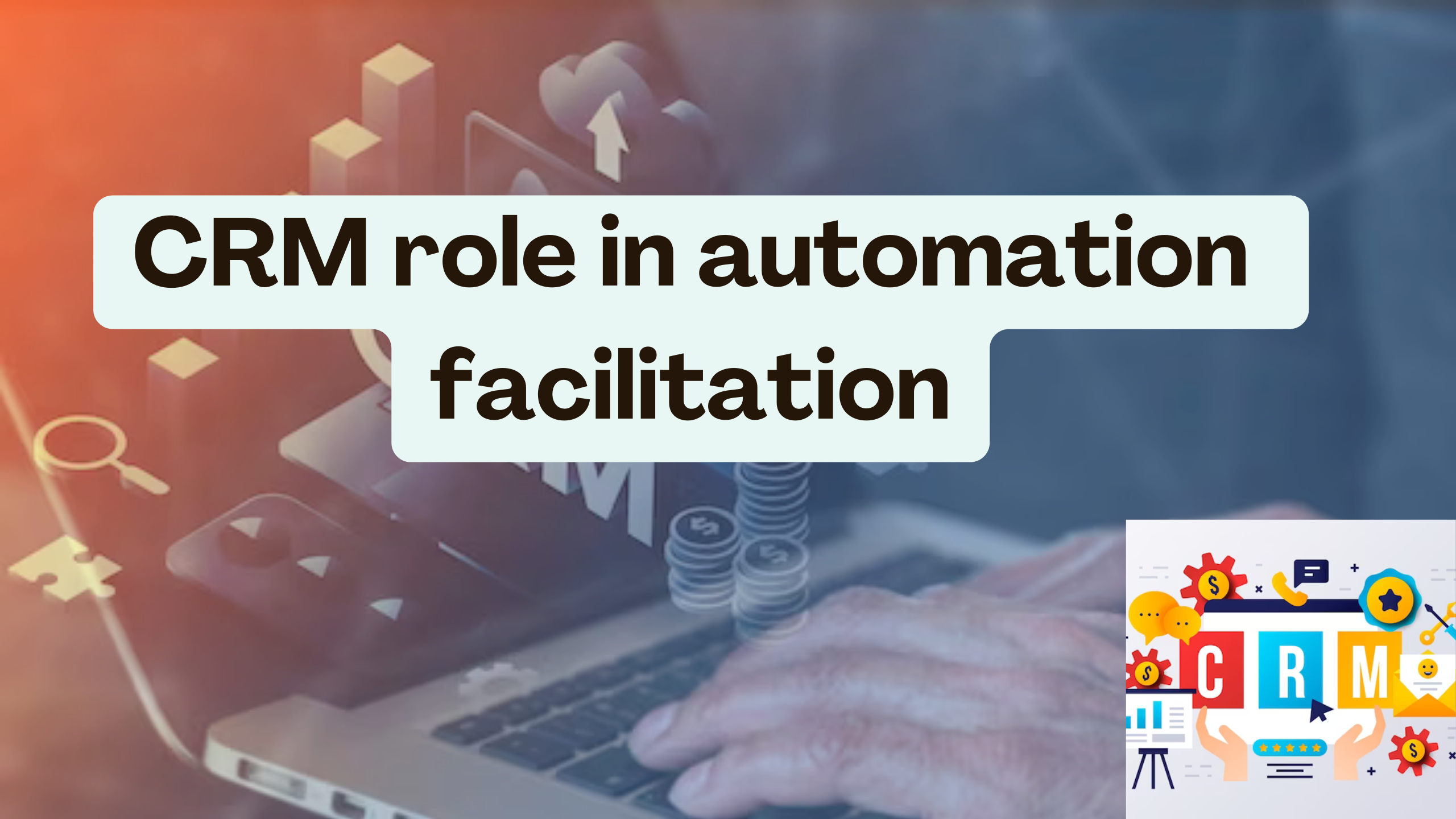CRM role in automation facilitation
-


CRM Role in Automation Facilitation
In the dynamic landscape of modern business, automation has emerged as a key driver of efficiency and productivity. Customer Relationship Management (CRM) plays a pivotal role in facilitating automation processes, transforming the way organizations operate. This article explores the intricate connection between CRM and automation, showcasing relevant SaaS products that contribute to this synergy.
Understanding the Harmony: CRM and Automation
1. Streamlining Customer Data Management
One of the fundamental aspects of CRM is centralized customer data management. By consolidating information related to customer interactions, preferences, and transactions, CRM systems create a solid foundation for automation. Automated processes can leverage this wealth of data to deliver personalized experiences, targeted marketing, and efficient customer service.
2. Empowering Sales Automation
CRM systems are a boon for sales teams. Automation in CRM enables the seamless management of leads, opportunities, and sales pipelines. Automated workflows can prioritize leads, send follow-up emails, and even generate quotes, allowing sales professionals to focus on building relationships and closing deals.
3. Enhancing Marketing Automation
For marketing teams, CRM serves as the backbone of automation strategies. Integration with marketing automation tools allows for the creation of tailored campaigns based on customer segments, behaviors, and preferences. Automated email marketing, lead scoring, and campaign tracking become more effective with a robust CRM system in place.
4. Improving Customer Service Automation
Efficient customer service is synonymous with timely responses and issue resolution. CRM systems, when integrated with customer service automation tools, enable automated ticketing, routing, and responses. This results in quicker issue resolution and a more satisfying customer experience.
5. Enabling Workflow Automation
Beyond specific departments, CRM contributes to the overall business workflow. Workflow automation within CRM platforms allows organizations to streamline internal processes. From approvals and notifications to data updates, CRM-driven automation ensures that the right information reaches the right people at the right time.
Key SaaS Products Driving CRM and Automation Integration
Understanding how CRM facilitates automation, let’s explore key SaaS products that exemplify this synergy:
1. Salesforce
- Salesforce: A cloud-based CRM platform offering robust automation capabilities for sales, marketing, and customer service.
2. HubSpot CRM
- HubSpot CRM: Known for its user-friendly interface, it seamlessly integrates with HubSpot’s marketing automation tools.
3. Zoho CRM
- Zoho CRM: Offers automation features that span across sales, marketing, and customer service.
4. Pipedrive
- Pipedrive: Focuses on sales pipeline management with automation for deal tracking and sales processes.
5. Freshsales
- Freshsales: Provides intuitive automation features for contact management and lead scoring.
Conclusion: Revolutionizing Business Operations
In conclusion, the integration of CRM and automation revolutionizes business operations. It empowers organizations to enhance customer experiences, streamline internal processes, and achieve higher efficiency across departments.
As businesses embark on this journey of CRM and automation integration, managing subscriptions and selecting the right SaaS tools become crucial. Subscribed.FYI steps in as the all-in-one solution, offering insights, comparison, and management of your SaaS stack. It simplifies the decision-making process, allowing you to navigate the complexities of SaaS tools effortlessly.
Empower Your Automation Journey with Subscribed.FYI
Unlock the full potential of CRM and automation with exclusive deals from Subscribed.FYI Deals. Sign up for free today and access savings on 100+ SaaS tools, facilitating a seamless integration of automation into your business processes.








